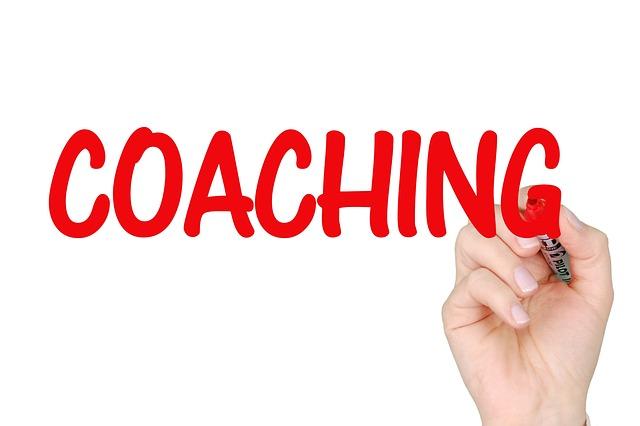In a world where self-discovery and personal growth have become paramount, the lines between life coaching and therapy often blur, sparking a lively debate among those seeking guidance. Can life coaching, with its forward-focused and goal-oriented approach, truly stand in for the deep introspection and healing offered by traditional therapy? This question invites us to explore the nuanced landscape of mental health and personal development, where the roles of coach and therapist may intersect, diverge, or even complement one another. As we embark on this exploration, we seek to understand the unique offerings of each path, the overlaps and distinctions, and ultimately, whether one can indeed replace the other in the journey toward a more fulfilled life.
Understanding the Distinct Roles of Life Coaches and Therapists
In navigating the pathways of personal growth and mental well-being, both life coaches and therapists offer unique contributions, yet they serve fundamentally different roles. Life coaches are typically forward-focused, aiming to guide clients in achieving specific personal or professional goals. They work with individuals on enhancing performance, improving relationships, or exploring new career avenues. Life coaches often employ motivational techniques and strategic planning to help clients overcome obstacles and achieve desired outcomes.
On the other hand, therapists delve deeper into emotional and psychological health. They are trained to address mental health disorders, trauma, and emotional distress. Therapists provide a safe space for individuals to explore their thoughts and feelings, often employing various therapeutic modalities to foster healing and self-awareness. While both professionals can help individuals move towards their aspirations, the key distinctions lie in their approach and the depth of issues they address. Here’s a quick comparison:
- Focus: Life coaching is goal-oriented; therapy is healing-oriented.
- Training: Life coaches may not require specific credentials; therapists are licensed mental health professionals.
- Approach: Life coaches use motivational strategies; therapists use evidence-based therapeutic techniques.
Navigating Emotional Health: When to Seek Therapy Over Coaching
In the intricate dance of emotional well-being, distinguishing between when to seek therapy versus coaching can be pivotal. Therapy, with its deep dive into psychological healing, is often necessary for individuals grappling with past traumas, mental health disorders, or persistent emotional challenges. It is a structured process facilitated by licensed professionals who are equipped to diagnose and treat various mental health conditions. In contrast, coaching focuses on future goals, personal growth, and overcoming specific obstacles without delving deeply into emotional pain or mental health issues.
- Therapy: Ideal for addressing mental health disorders, past trauma, and deep-seated emotional issues.
- Coaching: Suited for goal-setting, improving personal performance, and achieving specific life objectives.
While both fields aim to enhance life quality, their approaches and purposes differ significantly. Understanding these distinctions can guide individuals in making informed decisions about which path best aligns with their current emotional needs.

The Synergy of Coaching and Therapy for Holistic Well-being
In the pursuit of holistic well-being, individuals often find themselves at the crossroads of choosing between life coaching and therapy. While both aim to enhance personal growth, they offer distinct yet complementary benefits. Coaching tends to focus on the present and future, emphasizing goal-setting, personal achievements, and developing strategies to unlock potential. Therapy, on the other hand, delves into the past, exploring emotional patterns and unresolved issues to foster healing and self-understanding.
- Goal-Oriented vs. Healing-Focused: Coaching is typically about setting and achieving personal or professional goals, whereas therapy aims to heal emotional and psychological wounds.
- Present and Future vs. Past and Present: Coaching emphasizes the ‘here and now’ and future aspirations, while therapy often addresses past experiences that influence current behavior.
- Solution-Driven vs. Insight-Driven: Coaching is action-based, providing strategies for overcoming obstacles, whereas therapy seeks to understand the root causes of emotional distress.
By blending the strengths of both coaching and therapy, individuals can enjoy a comprehensive approach to well-being. This synergy allows for a more tailored path to personal development, addressing immediate challenges while also healing deeper emotional issues. The choice between coaching and therapy need not be exclusive; instead, integrating both can offer a balanced, holistic approach to achieving a fulfilling life.

Guidelines for Choosing Between a Life Coach and a Therapist
Choosing between a life coach and a therapist can often feel like navigating a labyrinth. Each path offers its own set of benefits and is tailored to distinct needs. Life coaches typically focus on helping individuals achieve specific goals, whether it’s enhancing career performance, improving personal relationships, or finding a work-life balance. They employ a forward-thinking approach, encouraging clients to envision their ideal future and strategize actionable steps to reach it.
- Goal-Oriented: Ideal for those looking to set and achieve tangible goals.
- Future-Focused: Concentrates on personal growth and development.
In contrast, therapists delve into emotional and psychological well-being, addressing issues such as anxiety, depression, and trauma. They provide a safe space to explore past experiences and underlying emotions that may hinder progress in various aspects of life. Therapists are trained to diagnose and treat mental health disorders, offering a depth of understanding and healing that goes beyond the surface.
- Emotionally-Driven: Focuses on emotional healing and mental health.
- Past and Present: Examines past experiences to understand present challenges.






























